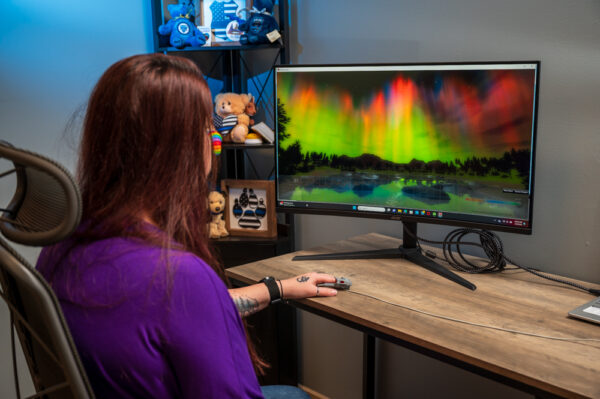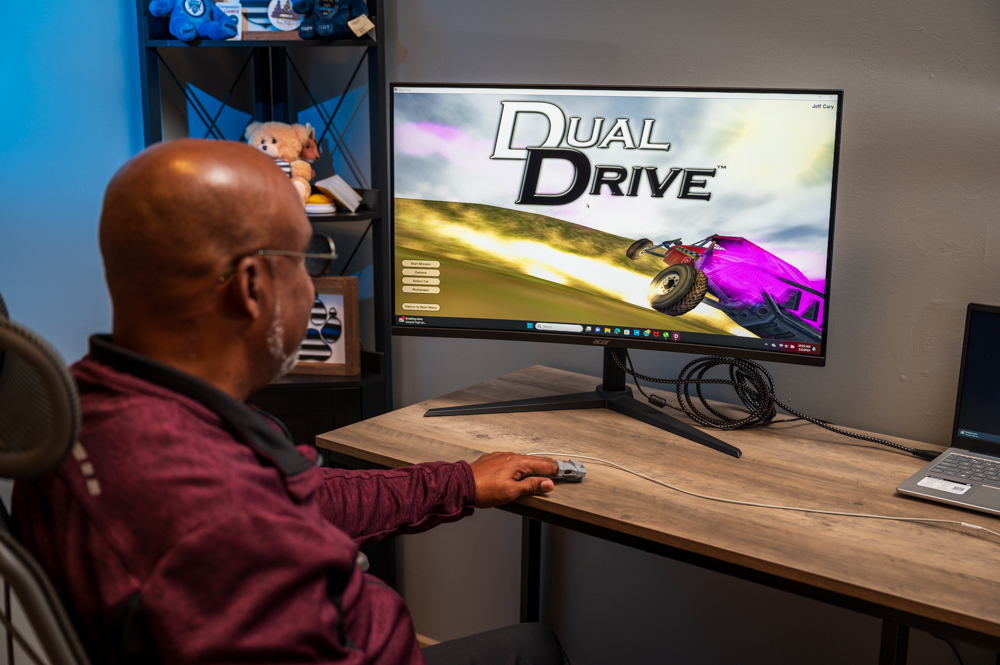In 1982, The New York Times columnist G. F. Cravenson warned the emergence of video games would “robotize” his children, cultivating a generation of “mindless, ill-tempered adolescents.”
That was the year a Texas ordinance banning video games for people under age 17, citing similar demagogic bombast, found its way to the Supreme Court’s portico before it was ruled a violation of the Fourteenth Amendment’s due process clause.
The $9 billion burgeoning video gaming industry would appeal to the nation’s high court yet again some three decades later when the Supreme Court struck down a California law that made it illegal for minors to buy some video games in that state.
The industry is valued north of $363 billion today, but video game panic continues to tread water, especially in the wake of mass shootings like Columbine, Sandy Hook and Marjory Stoneman Douglas High School.
Many of us of the Millennial and Gen Z cohorts were firmly taught in youth video games rot the brain. They make us violent, they adulterate our morals and desensitize us to horror. These notions were positioned as unequivocal fact.
But what if video games could prevent a mass shooting?
They can, according to a digital healthcare team in Maricopa introducing first-of-its-kind technology to the global stage in this city later this month that challenges you to “play with your medicine.”
Game-changer
The Netflix anthology series Black Mirror is a modern-day Twilight Zone that uses the themes of technology and media to comment on contemporary social issues. Episodes like “Striking Vipers” and “Playtest” present a world where virtual reality personalizes gameplay to a person’s deepest fears.

Maricopa-based Northern Lights Therapy and LifeSpan Digital Health partnered with the University of Arizona to create Recharge, a game-based resilience training that launches in Maricopa March 24.
When LifeSpan CEO Jeffrey Cary’s daughter died and left behind sons afflicted with various mental health disorders, he started looking for solutions and turned first to his own savvy. Cary, a tech industry veteran of 44 years, found Northern Lights Therapy Clinical Director Brianna Reinhold through an InMaricopa article last year.
“We’re establishing a game-based biofeed-back intervention that will build resilience for at-risk people starting in Maricopa,” Cary said. “Game-based interventions are scientifically sound. It’s been proven.”
Cary’s expertise in tech, complemented by Reinhold’s in mental healthcare, gave birth to Recharge. A user of the program is connected to a biofeedback monitor while playing one of several video games, and the player can only win the game by fighting internal stress and anxiety in real time.
Meanwhile, clinicians collect important data.
A later version of the program will allow for exposure therapy in virtual reality inside a gaming space at the Northern Lights Therapy office.
“We live in the desert. If somebody is terrified of the ocean, I can’t justify to insurance a trip to California to go do some exposure therapy,” Reinhold explained. “Through exposure therapy, we can put them smack dab in the middle of their fear. We can bury them in snakes or scorpions, whatever their fear is, all while sitting in an office in Maricopa, five minutes from their house.”
Health points
The FDA authorized prescriptive digital therapeutics — video games as medicine, essentially — in 2020 after Boston-based EndeavorRx brought a video game treatment for children under age 12 with ADHD to market.
There hasn’t been anything else like it, until now, and Recharge is intended primarily for adult treatment.
“We’re bringing services that nobody has ever done before,” Reinhold said.
In one game, the user is presented with a stirring landscape — a glittering lake backed by mighty mountains and alpine forests under a picturesque night sky. Calming, spa-like music hums as the lake laps and clouds drift by.
If stress signals like pulse and skin temperature increase and go unchecked, the image fades and the music warbles and muffles. It is unpleasant. For users in control of their anxieties, conversely, the music and imagery become even more brilliant.
“As long as your breath and heart rate are stable, the imagery will become more and more vivid, and the music is calming and relaxing,” Reinhold said. “If you let your heart rate go and don’t monitor it, it starts to take away the colors and the sound.”
In another game, the player steers a racecar along a track, trying to cross the checkered flag before several in-game competitors. When the hardware detects indicators of anxiety, the car slows down or even comes to a full stop.
Performing poorly in the game causes further anxiety. Hence, experienced players will learn to remain calm during stressful, real-world interactions.
“It’s called game adaptation,” Cary said. “The environment responds to the user’s ability or inability to control their autonomic functions.”
During gameplay, the user can see their biofeedback responses on the screen — changes in heart rate, breathing, skin temperature and dozens of other key indicators.
Level up
Recharge is an early warning system for at-risk populations that uses artificial intelligence, self-reported data and biofeedback to predict an emotional disturbance 48 to 72 hours before it begins.
And it’s not just for individual treatment.
“The long-term goal is to use all the data collected to determine social predictors of health across entire communities like Black and Indigenous people,” Cary said.
Recharge will first be available to emergency medicine personnel and residency physicians. Then, it will be offered to first responders and the military, groups that experience burnout at rates of 59 to 72%, according to research from LifeSpan.
Ultimately, the program will target college and grade-school students with systems installed in schools and shipped to houses at no cost for at-home use online. It will also be an important tool for couple’s therapy, as people can see when their partners get worked up about topics even if they appear calm, Reinhold added.
She said she believes the program will offer an engaging, affordable and more effective alternative to traditional medicine.
“I’m not a fan of medication,” she contended. “We overmedicate in this society instead of dealing with the problem.”
The eight-week course of 30-minute sessions costs $400 and includes a workbook and the full attention of a clinician.
Why Maricopa?
After Recharge is established in Maricopa, its creators will roll it out in Casa Grande, then the West Valley and eventually throughout the U.S.
But Maricopa is the perfect place to get things started, Cary said, here in the state’s fastest-growing county amid a nearly 200% population growth event.
“Maricopa is growing, and it lacks a lot of the resources that areas like Scottsdale or Tucson have,” Cary said. “The need will be greater, but the resources are fewer.”
He and Reinhold say it’s time to challenge stigmas and prove that, when used appropriately, gaming has a benefit, not a detriment.
“Northern Lights Therapy wants to shake up the entire healthcare system because I hate our system,” Reinhold said. “Traditional therapy doesn’t work anymore. I want to challenge everything.”
An academic paper last year by the Playability Association, the Game Science Research Center and the University of Milano Psychology Department found video games can be used to treat depression, anxiety, PTSD and addiction. They offer a sense of engagement and immersion that traditional therapy methods may lack and can teach valuable skills like problem solving, decision making and coping strategies.
As with all new technology — the internet, cell phones, ChatGPT — there’s a silver lining for every mushroom cloud.
“I’ve worked with people who have full-blown addictions to video games. If you’re using it to escape from reality, that’s the path that can lead you to addiction and it’s unhealthy,” Reinhold said. “This is a video game that teaches you things to better your life.”





![City gave new manager big low-interest home loan City Manager Ben Bitter speaks during a Chamber of Commerce event at Global Water Resources on April 11, 2024. Bitter discussed the current state of economic development in Maricopa, as well as hinting at lowering property tax rates again. [Monica D. Spencer]](https://www.inmaricopa.com/wp-content/uploads/2024/04/spencer-041124-ben-bitter-chamber-property-taxes-web-218x150.jpg)

![3 things to know about the new city budget Vice Mayor Amber Liermann and Councilmember Eric Goettl review parts of the city's 2024 operational budget with Mayor Nancy Smith on April 24, 2024. [Monica D. Spencer]](https://www.inmaricopa.com/wp-content/uploads/2024/04/spencer-042424-preliminary-budget-meeting-web-218x150.jpg)





![Alleged car thief released without charges Phoenix police stop a stolen vehicle on April 20, 2024. [Facebook]](https://www.inmaricopa.com/wp-content/uploads/2024/04/IMG_5040-218x150.jpg)




![City gave new manager big low-interest home loan City Manager Ben Bitter speaks during a Chamber of Commerce event at Global Water Resources on April 11, 2024. Bitter discussed the current state of economic development in Maricopa, as well as hinting at lowering property tax rates again. [Monica D. Spencer]](https://www.inmaricopa.com/wp-content/uploads/2024/04/spencer-041124-ben-bitter-chamber-property-taxes-web-100x70.jpg)